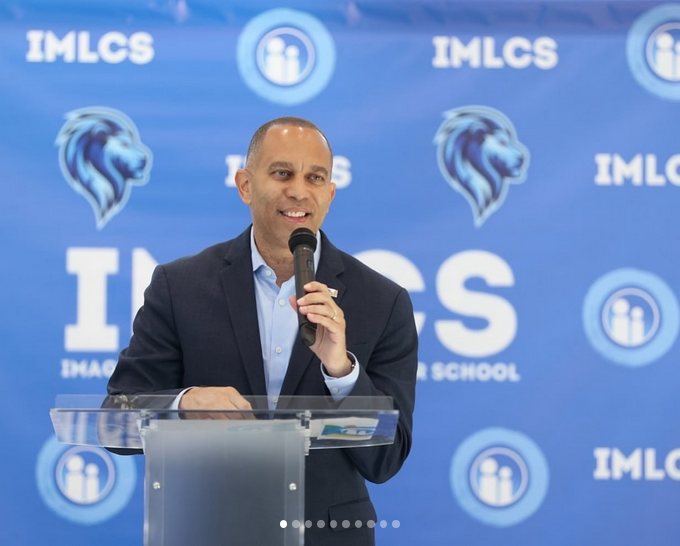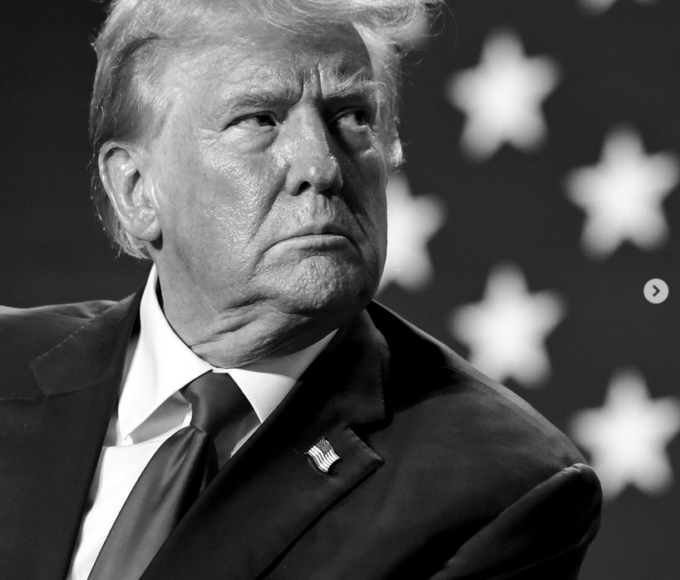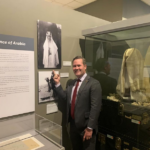DESPITE the mandate for change, Prime Minister Narendra Modi is not going to find it easy to contain price rise, inflation, fiscal deficit and subsidies. Also, since power, education, and land acquisition are State subjects, his real challenge will be to carry along the 17 States where the Bharatiya Janata Party (BJP) is not in power. Added to this is the fact that he does not have a majority in the Rajya Sabha to implement new laws he would like.
As Milan Vaishnav, an Associate at the Carnegie South Asia Programme puts it, “Willpower of a decisive leader is insufficient…. Leaders at the top come and go, but the institutions they leave behind tend to stick around.”
“Change in the government alone does not produce a sustained reduction in uncertainty; the next government must have a clear economic vision, tailored for the short, medium and long runs,” he adds.
Mohan Guruswamy, Chairman, Centre for Policy Alternatives, is more optimistic. He says, “Any government will have to work really hard to be worse than the previous one. “
Over the past few decades, India has come to be rated as one of the most corrupt economies in the world. Various ministries, agencies and administrative wings under the rudderless government were working at cross purposes. Corruption and non-transparent decision-making by the constitutional and extra-constitutional authorities had hijacked the State machinery for their personal agendas. Blatantly misusing its discretionary powers, the Congress-led UPA government ignored professional merit and rewarded their loyalist retired bureaucrats by appointing them as independent directors of listed companies. A former Cabinet Secretary and former Secretary of Corporate Affairs, who were independent directors on the board of Satyam Computer Services, were let off lightly without any accountability for the scam.
Apart from that, there is the ‘4Cs and 1R’ syndrome—Courts, Comptroller and Auditor General (CAG), Central Bureau of Investigation (CBI), Central Vigilance Commission (CVC) and Right to Information (RTI)—which threaten the functioning of the administrative services.
The impact was “policy paralysis” or “implementation paralysis”, as former Finance Minister P Chidambaram used to call it—meaning slow movement of files. So much so that the Department of Personnel and Training (DoPT) was forced to conduct training programmes for IAS officers on how to overcome the policy paralysis. The prosecution of numerous ministers, bureaucrats and corporate bigwigs in graft-related issues contributed to this paralysis of public policy as well as corporate practices. This climate of uncertainty deterred many investors, who were wary of investing in the country. “We are coming to a situation where everybody is scared to even take a decision. Taking a decision means you had to have a mala fide intention; you had to have some kind of personal motive attached to it. If everybody starts doubting the credentials of the other, if every politician of the country is considered to be corrupt or considered to be having apersonal agenda, where’s this country going to end up?” is how Nationalist Congress Party (NCP) leader and former Heavy Industries Minister Praful Patel explained the impact of policy paralysis.
The result is that the civil services is facing an identity crisis. What exactly is their role? What they are supposed to do is not clear, neither it is clear whether the public services are meant to benefit the politicians, government servants or the common public. Take, for instance, the case of IAS officer Durga Shakti Nagpal, who was suspended for allegedly taking a bold decision. Though she was later reinstated, there were other instances where even cases were registered against retired officers.
This was the lesson learnt when ex-Telecom Secretary Siddharth Behura spent 14 months in jail for doing what his minister asked him to do.
However, when the CBI filed a case against Kumar Mangalam Birla, chairman of the multi-billion-dollar Aditya Birla group, in the coal scam, the then Petroleum Minister, Veerappa Moily, went to the extent of saying that India was following in the footsteps of Russia where businessmen routinely end up in jail, thanks to over-zealous prosecutors and ministers. “Whatever we do should be in accordance with the strict rule of law. You cannot proceed against somebody on mere perception, unless there is cogent evidence to proceed with,” Moily was quoted as saying.
THE former Minister of Commerce and Industries, Anand Sharma, urged the CAG, courts and CBI not to play to the gallery and create an environment of sensation and shock. “Top industry leaders have spoken to me, protesting strongly. They have said it is impossible to operate in this sort of an environment,” he said, admitting that the government’s actions had created a sense of policy paralysis, hurting investor confidence.
The former Corporate Affairs Minister, Sachin Pilot, was candid enough to observe that the courts negatively affected decision-making by bureaucrats and policymakers. “While no one is above the law and wrongdoers have to be brought to justice, we must ensure that such actions are based on hard facts and do not create an atmosphere of fear and uncertainty,” he said.
Commenting on the issue, Rahul Bajaj, Chairman, Bajaj Group, and MP, said that he feared industry was being transported back to the licence permit raj of pre-liberalisation days. Discretionary policies had to be reduced to a minimum and if, after due process of law, a bureaucrat or a politician or a businessman was found guilty, he should be punished, he suggested.
“We’re still unable to differentiate between policy decisions and scams. They’re usually unrelated because there can be a scam in what’s perceived to be a good policy decision and no scam in what’s considered to be a bad policy decision,” said former Congress MP Milind Deora.
Another incident of this kind was when HDFC chairman Deepak Parekh and Planning Commission Deputy Chairman Montek Singh Ahluwalia expressed solidarity with former SEBI Chairman CB Bhave and former member KM Abraham, who are facing an investigation by the CBI for alleged irregularities in granting of licences to the MCX Stock Exchange in 2008.“How can anyone perform in such a system? If fear is there, how can there be decisions?” Parekh asked.
As things stand, bureaucrats expect clear vision, policy guidelines and some independence from their ministers. Politicians make the policies, bureaucrats implement them—hence mutual trust and confidence between the two is absolutely necessary. Bureaucrats can function brilliantly if they have an assurance that they will not be penalised for honest mistakes.
We have a system that does not impose any penalty on those who do nothing but just sit on files. But there are penalties for those who take a decision without any political protection. The average bureaucrat has made this an excuse for not doing anything. Thus, files stop moving and bureaucrats freeze into inaction.
As a result, the common man’s perception of a bureaucrat is someone who is very resourceful, but seldom helpful. He is systematically programmed to slow down the movement of files and only concerned with a crisis till the file is on his desk. What happens after he relinquishes charge is not his concern. So, instead of finding a solution, most officers keep tinkering with the problem till the end of their tenure or posting.
COMMENTING on this situation, former Prime Minister Rajiv Gandhi had said, “We have government servants who do not serve but oppress the poor and the helpless, who do not uphold the law but connive with those who cheat the State and whole legions whose only concern is their private welfare at the cost of society. They have no work ethic, no feeling for the public cause, and no involvement in the future of the nation, no comprehension of national goals, and no commitment to the values of modern India. They have only a mercenary outlook, devoid of competence, integrity and commitment.”

The civil service should ideally mean faceless people and an institutionalised system of governance of the people and by the people. But this is far from the reality. India’s problem is not too many civil servants, but too many in the wrong place and not enough in the right place. Almost 93 per cent of 6.4 million civil servants comprise Class III and IV employees.
No Prime Minister, howsoever dynamic, and a handful of advisers can expect to change anything till the mindset of the file-pushing bureaucracy changes. Till the time people—not just in the PMO but in every ministry—do not decide to work, the policy paralysis may continue. As India’s 15th Prime Minister, Narendra Modi’s greatest challenge is to infuse a new lease of life into the bureaucracy to shape India’s destiny. A simple message that can work wonders is that fast implementation is safe and will be rewarded. The new government must be seen focusing on economic revival, not black money: that itself will curb court activism.
A Government of India press communiqué on the allocation of portfolios an hour after Modi assumed charge at South Block stated that the PM is in charge of “all important policy issues” and “all other portfolios not allocated to any minister”. What this really means is that the ministers themselves cannot take decisions on most matters and will have to depend on the PM’s nod.
The writing on the wall is clear for all to see—unlike his predecessors, Modi will be calling the shots on policy issues and his cabinet ministers are expected to toe the official line. This means that the PMO, under Modi, will function like a glorified Opscontrol room and if everything goes as planned, bureaucratic policyparalysis will be a thing of the past.
As Sanjaya Baru revealed in his book, some ministers in the Manmohan Singh government were reporting directly to Sonia Gandhi at 10 Janpath and were not obliged to keep the PM in the loop before taking a final decision.
It may be recalled how A Raja issued telecom licences without properly informing the Prime Minister, or without following the formalities of an auction in the 2G scam which presumably cost the exchequer `1.76 lakh crore.
Modi is not likely to repeat the same mistakes. He is going to consolidate all power within himself. He has made it clear that he will decide on all important policy issues and his will be the final word. All important decisions will be taken by the PM, FM, or by both.
That the PMO will be an important hub is amply clear by the manner in which the new government swiftly promulgated an ordinance to pave the way for the induction of a retired IAS officer, former TRAI chief Nripendra Misra, as the Principal Secretary in the PMO. Knowing well that the Telecom Regulatory Authority of India Act, 1997, explicitly forbade Misra’s “future employment under the Central and State governments”, the Modi government bypassed the hurdle by bringing in the ordinance overriding the Act in record speed.
The main intention behind the restructured PMO is to ensure that all ministries obtain prior approvals and policy guidelines in initial stages. Such a system helped bring about predictability and uniformity in policy, particularly in Gujarat.
ACCORDING to officers who have worked with him, Modi takes quick decisions and wants results fast. He may change the way secretaries are appointed and the government will protect them for bona fide decisions that may go wrong. If the PMO and the Cabinet Secretary decide on top bureaucrats’ appointments, instead of the ministers in charge of those departments, half the problem will be solved.
Transparency and accountability will be the two cornerstones to take governance closer to people and make them an equal and integral part of the decisionmaking process.
As Gujarat Chief Minister, Modi demonstrated strong commitment to open and transparent government. The emphasis was on providing time-bound services to the citizens by leveraging the e-governance infrastructure. The objective was to ensure provision of all government-to-citizen services covered under the Citizens’ Charter.
As Modi tweeted, the emphasis would be on “Minimum Government and Maximum Governance”—lean at the top and broad at the grassroots.
A bureaucratic reshuffle may also be on the cards and tough times are predicted for laidback bureaucrats. Hopefully, these steps will change the work culture and style of governance, improve coordination between different departments and speed up the decision-making process.





























































